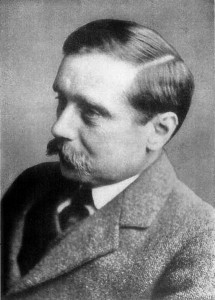Free speech or legalized lying, and who gets to decide?

By Maggie Thurber | for Ohio Watchdog
LEGALIZED LYING: It was H.G. Wells who said “advertising is legalized lying.” Do political ads also fall into that category – or are they an expression of free speech protected under the First Amendment?
The U.S. Supreme Court ruled in favor of two groups that want to challenge the constitutionality of an Ohio election campaign law, but not everyone is happy about the decision and what it may mean for voters.
While the decision was good for those who want to overturn the law, others worry about the long-term implications of what has been described as a ‘legalized lying,’ should the law be declared unconstitutional.
Ohio has a law making it illegal to make a “false statement concerning the voting record of a candidate or public official.” In 2010, the Susan B. Anthony List and the Coalition Opposed to Additional Spending and Taxes sued the Ohio Elections Commission, saying the law was a violation of free speech under the First Amendment.
Read the details of the case here and here.
Lower courts ruled the groups lacked standing — they weren’t harmed by the law because they weren’t prosecuted in court, so they couldn’t go forward with the suit.
They appealed the lack of standing decision all the way to the Supreme Court, which issued a unanimous decision in their favor.
Now the case goes back to the lower court to decide whether the law infringes on their free speech – or not.
Some have characterized the issue as a ‘license to lie.’
Brian Rothenberg, executive director of Progress Ohio, a liberal policy group, understands that description.
“Truth in advertising is important to consumers,” he said. “Truth in advertising in politics is just as important as truth in advertising in products. I respect the rule of law and what the Supreme Court does, but it defies common sense. If you say something that is false, you ought to be called on it.”
While most would agree lying is wrong, the real question at the core of the debate is who gets to decide — the government or the voters?
More than a dozen states have laws similar to Ohio’s, but not all have survived judicial scrutiny.
In striking down a similar law in 2007, Justice James Johnson of the Washington Supreme Court wrote, “The notion that government, rather than the people, may be the final arbiter of truth in political debate is fundamentally at odds with the First Amendment.”
Chris Finney, an attorney and one of the founders of COAST, agrees.
The voters, he said, “need to listen and discern for themselves.”
That’s what concerns Rothenberg.
Up to about three to four weeks before an election, he said, most people don’t pay attention to anything except major races.
If the false statement law is found to be unconstitutional, it could “lead to the ability to mislead the public about something with no real repercussions to stop it and no real opportunity for the person attacked to clear their name.”
With early voting, some might vote based on a statement or ad only to find out later it was actually false — or vote based on a pronouncement from the Elections Commission there was probable cause to believe the statement was false, only to learn later it was true.
Rothenberg said the effect of effdeclaring the law unconstitutional is not as bad today as it would have been 20 years ago.
“Social media and the Internet give voters better information and an easier ability to find out about (the truth),” he added, “but only if they seek out the information online.”
Rothenberg agreed with decision granting standing, but he’s worried about how judges are using the issue.
“I understand that you don’t want all Americans to be able to halt government by suing,” he said. “I think standing is becoming a legal game to avoid courts actually making decisions. In this case, (the Supreme Court) sent it back and gave them standing, but in the JobsOhio case, they view it differently. The hurdle of standing isn’t meant to prevent legal controversies from being adjudicated.”
Progress Ohio and two Democratic members of the General Assembly sued over the constitutionality of using public money to support JobsOhio, Gov. John Kasich‘s quasi-private nonprofit economic development entity. The Ohio Supreme Court upheld lower court rulings.
Rothenberg also worries about the long-term impact on politicians and political campaigns should the false statement law be found unconstitutional.
“Most people are skeptical about politicians in general,” he said, “but opening the flood gates like that decision could do will worsen that opinion. It might increase apathy, which is a bad thing for democracy.”
COAST, obviously, is happy about the ruling, but Finney said it was really just the beginning of the legal wrangling. The next step will be to ask for an injunction to halt implementation of the law.
“Our plan is to move for preliminary injunction which means that the law is enjoined from enforcement until the ultimate trial and appeals are resolved,” he said. “If we succeed on that issue, the enforcement of the law would stop immediately upon the granting of the motion.”
He estimated the process to get a preliminary injunction would take from three to six months, hopefully in time for the November elections.
You can reach Maggie Thurber via email at maggie@ohiowatchdog.org







